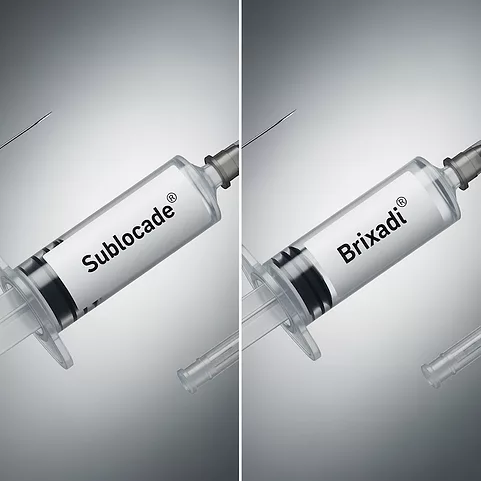Home » Twelve Steps at the Heart of Recovery
Twelve Steps at the Heart of Recovery
July 26, 2012
From The Carlat Addiction Treatment Report
Issue Links:
Editorial Information
The heart of the Alcoholic Anonymous (AA) recovery program is contained in 12 Steps.
These guiding principles, accepted by AA members as ‘spiritual principles,’ outline a course of action for recovery from alcoholism. The method has since been adapted and become the foundation of other 12-step programs aimed at diverse addictions, compulsions, or behavioral problems.
A 12-step program is a fellowship of recovery for peers who provide strength, hope, and experience to those working a daily recovery program. The 12 steps are focused on principles that guide clients with addictions toward sobriety with the support of others in recovery.
Twelve-step models are abstinence-based. The goal of the 12 steps is to resolve the destructive cycle of addiction and create a life-long program and support network. The 12 steps of AA, which describe the experience of the earliest members of the organization, are as follows:
The first published description of the 12 steps appeared in the 1939 book, Alcoholics Anonymous, written by William D. Silkworth, Bob Smith, and Bill Wilson. The book is widely referred to as the “Big Book.” Since then, 12-step methods have been adapted to address a wide range of substance abuse and dependency problems.
Narcotics Anonymous was formed by drug addicts, and there are now fellowships based on the addicts’ drug of dependency such as Cocaine Anonymous, Crystal Meth Anonymous, Pill Anonymous, and Marijuana Anonymous. There are fellowships that provide help for people with behavioral issues, such as compulsion or addiction to gambling, crime, food, sex, hoarding, getting into debt, and work. These include fellowships such as Gamblers Anonymous, Overeaters Anonymous, Sexaholics Anonymous, Clutterers Anonymous, Debtors Anonymous, and Workaholics Anonymous.
Addiction TreatmentThese guiding principles, accepted by AA members as ‘spiritual principles,’ outline a course of action for recovery from alcoholism. The method has since been adapted and become the foundation of other 12-step programs aimed at diverse addictions, compulsions, or behavioral problems.
A 12-step program is a fellowship of recovery for peers who provide strength, hope, and experience to those working a daily recovery program. The 12 steps are focused on principles that guide clients with addictions toward sobriety with the support of others in recovery.
Twelve-step models are abstinence-based. The goal of the 12 steps is to resolve the destructive cycle of addiction and create a life-long program and support network. The 12 steps of AA, which describe the experience of the earliest members of the organization, are as follows:
- We admitted we were powerless over alcohol—that our lives had become unmanageable.
- Came to believe that a Power greater than ourselves could restore us to sanity.
- Made a decision to turn our will and our lives over to the care of God as we understood Him.
- Made a searching and fearless moral inventory of ourselves.
- Admitted to God, to ourselves, and to another human being the exact nature of our wrongs.
- Were entirely ready to have God remove all these defects of character.
- Humbly asked Him to remove our shortcomings.
- Made a list of all persons we had harmed, and became willing to make amends to them all.
- Made direct amends to such people wherever possible, except when to do so would injure them or others.
- Continued to take personal inventory and when we were wrong promptly admitted it.
- Sought through prayer and meditation to improve our conscious contact with God, as we understood Him, praying only for knowledge of His will for us and the power to carry that out.
- Having had a spiritual awakening as the result of these Steps, we tried to carry this message to alcoholics, and to practice these principles in all our affairs.
The first published description of the 12 steps appeared in the 1939 book, Alcoholics Anonymous, written by William D. Silkworth, Bob Smith, and Bill Wilson. The book is widely referred to as the “Big Book.” Since then, 12-step methods have been adapted to address a wide range of substance abuse and dependency problems.
Narcotics Anonymous was formed by drug addicts, and there are now fellowships based on the addicts’ drug of dependency such as Cocaine Anonymous, Crystal Meth Anonymous, Pill Anonymous, and Marijuana Anonymous. There are fellowships that provide help for people with behavioral issues, such as compulsion or addiction to gambling, crime, food, sex, hoarding, getting into debt, and work. These include fellowships such as Gamblers Anonymous, Overeaters Anonymous, Sexaholics Anonymous, Clutterers Anonymous, Debtors Anonymous, and Workaholics Anonymous.
KEYWORDS substance-abuse
Issue Date: July 26, 2012
Recommended
Newsletters
Please see our Terms and Conditions, Privacy Policy, Subscription Agreement, Use of Cookies, and Hardware/Software Requirements to view our website.
© 2025 Carlat Publishing, LLC and Affiliates, All Rights Reserved.


_-The-Breakthrough-Antipsychotic-That-Could-Change-Everything.webp?t=1729528747)



